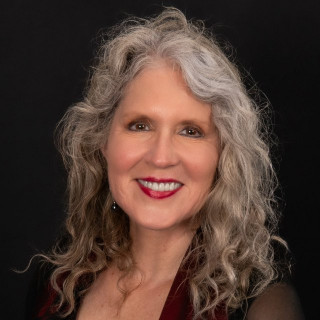Cumberland Legacy Law* provides the highest quality Estate Planning for clients in Alaska, Arizona, California, Colorado, Oregon and Tennessee. Whether you need a sophisticated strategy for minimizing or avoiding estate taxes and providing maximum possible asset protection, or just a simple will or trust to ensure your assets are distributed in accordance with your wishes, or anything in between, we are here to help you and your loved ones.
We present seminars on a variety of Estate Planning and Elder Law topics; call us if you want to be on our seminar mailing list, or subscribe to our newsletter by jotting a quick note to us.
Nina Whitehurst, the owner of Cumberland Legacy Law, is a member of Wealth Counsel, Elder Counsel and the National Association of Elder Law Attorneys, all national estate planning attorney organizations. She is continually upgrading and updating her knowledge of estate planning law through seminars and being an active member of several estate planning attorney email list serves. Her husband, Brian Whitehurst, is the firm's marketing coordinator. Nina Lamothe is the firm's documentation paralegal.
*Cumberland Legacy Law is not a public legal aid society.
- Estate Planning
- Guardianship & Conservatorship Estate Administration, Health Care Directives, Trusts, Wills
- Elder Law
- Probate
- Probate Administration
- Real Estate Law
- Commercial Real Estate, Condominiums, Easements, Mortgages, Residential Real Estate
- Credit Cards Accepted
-
Rates, Retainers and Additional Information
No legal advice is provided prior to engagement. You will know when you have engaged an attorney because you will have signed a fee agreement and will have provided a deposit for legal fees.
- Alaska
-

- Arizona
-

- California
-

- Colorado
-

- Oregon
-

- Tennessee
-

- US District Court, District of Arizona
-

- English: Spoken, Written
- Attorney
- Cumberland Legacy Law
- Current
- Sandra Day O'Connor College of Law, Arizona State University
- J.D. (1986) | Law
- Honors: summa cum laude
-

- Arizona State University
- B.S. (1983) | Accounting
- Honors: summa cum laude
-

- AV Preeminent Peer Rating
- Martindale-Hubbell
- 2017-2023
- Client Champion - GOLD
- Martindale Hubbell
- 10.0 Superb Rating
- Avvo
- Client Champion - SILVER
- Martindale-Hubbell Lawyer Services
- Distinguished Lawyer
- Expert Network
- Wealth Counsel
- Member
- Current
-

- ElderCounsel
- Member
- Current
-

- National Association of Elder Law Attorneys
- Member
- Current
-

- Siskiyou County Bar Association
- Member
- Current
- Activities: President 2017-2018
-

- State Bar of Tennessee # 037146
- Member
- - Current
-

- 3 Common Probate Questions: Estate Planning Basics
- Cumberland Legacy Law Blog
- 6 Facets of Estate Planning That LGBTQ+ Couples Should Know
- Cumberland Legacy Law Blog
- 8 Frequently Asked Questions on Last Wills and Testaments
- Cumberland Legacy Law Blog
- Affordable Housing Options for Low-Income Older Adults
- Cumberland Legacy Law Blog
- Do You Need a HIPAA Release?
- Cumberland Legacy Law Blog
- Wills, Trusts and Nursing Home Asset Protection, Various
- Q. Does my brother's widow have a claim to inheritance left by my mother in Florida?
- A: Because your brother survived your mother, his share of your mother's estate is governed by your brother's will, which might conceivably leave everything to his wife.
If your brother died without a will, then his share is governed by the laws of intestate succession which likely means his widow inherits his share.
- Q. Loaned daughter money for home; concerns about property if she divorces or passes away.
- A: The first thing you need to do is document the loan property. At a minimum, hire an attorney to help you draw up a promissory note for your daughter to sign. That way, if she passes unexpectedly, you would have a claim against her estate to be prepaid.
You might consider asking her for a deed of trust to secure the note, but an attorney would need to help you determine whether that would trigger a due on encumbrance clause under the terms of the existing home loan.
But if she puts all of her assets in both her name and her husband's name as joint tenants with rights of survivorship, she may not have any estate against which to make a claim because it will all go to her husband. ... Read More
- Q. Can I set up a trust for my 25-year-old child using funds from his grandma's 403(b) plan?
- A: If your son is the beneficiary he can do whatever he wishes with the money when he inherits it. If you do not like that result you would need to prevail upon your mother to leave the money to a trust created by you or by her rather than directly to your son.

 Medicaid Compliant Annuities vs. Promissory Notes in Crisis Planning | Elder Law Interview
Medicaid Compliant Annuities vs. Promissory Notes in Crisis Planning | Elder Law Interview